In the lead up to Christmas, when most families are preparing bread stuffing, putting the final tipple in the trifle and glazing the ham, the Lalors are having a rather different experience. On 23 and 24 December they’re overseeing the collection of hundreds of turkeys from their family home outside Rhode, Co Offaly.
By the time the last turkey has been seen off, you could say Christmas doesn’t start for the Lalors until late Christmas Eve night.
Looking at it from another perspective, it can be perceived that the festive season starts on Gerard and Paula Lalor’s farm good and early, when 650 chicks arrive in August.
Take it as you will, but what cannot be denied is that this is a very different type of Christmas to most.
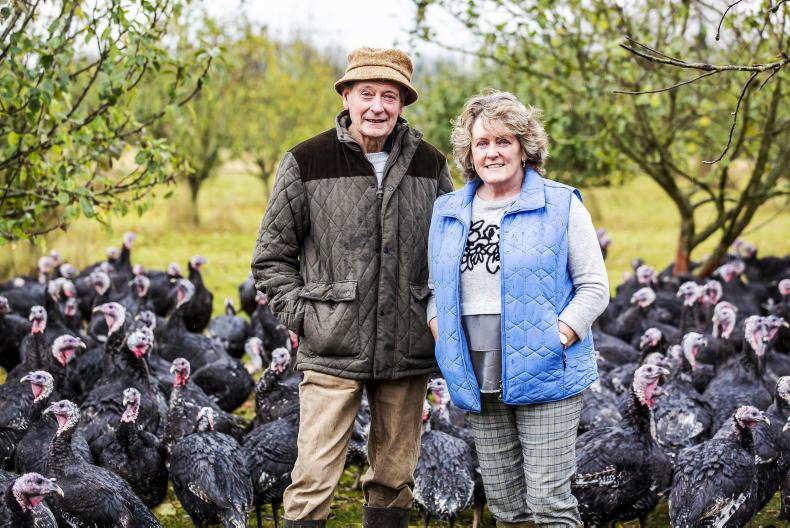
Gerard and Paula Lalor. \ Philip Doyle
One where you gear up approaching 25 December as opposed to gearing down, one where Christmas dinner will be ready when it’s ready and one where your own bird is the last priority.
“If there’s a damaged one, we take that, one with a broken wing or something,” smiles Gerard of their Christmas goings-on.
The Lalors’ main enterprise is tillage. Gerard grows grain, wheat barley and spring beans. He also has forestry and sheep, but hasn’t lambed for the past two years. He buys in ewe lambs in autumn and sells them as breeding ewes the following September. The turkeys are the focus of the latter quarter of the year, ensuring there is no lull during what would otherwise be a quiet time. In recent years the Lalors started bottling apple juice – but more on that later.
There were a few things that sparked Gerard’s interest in turkeys when he first got into them 25 years ago (Ballybryan Bronze Turkeys were featured in the Farmers Journal in 2000 when they were just a few years in business)
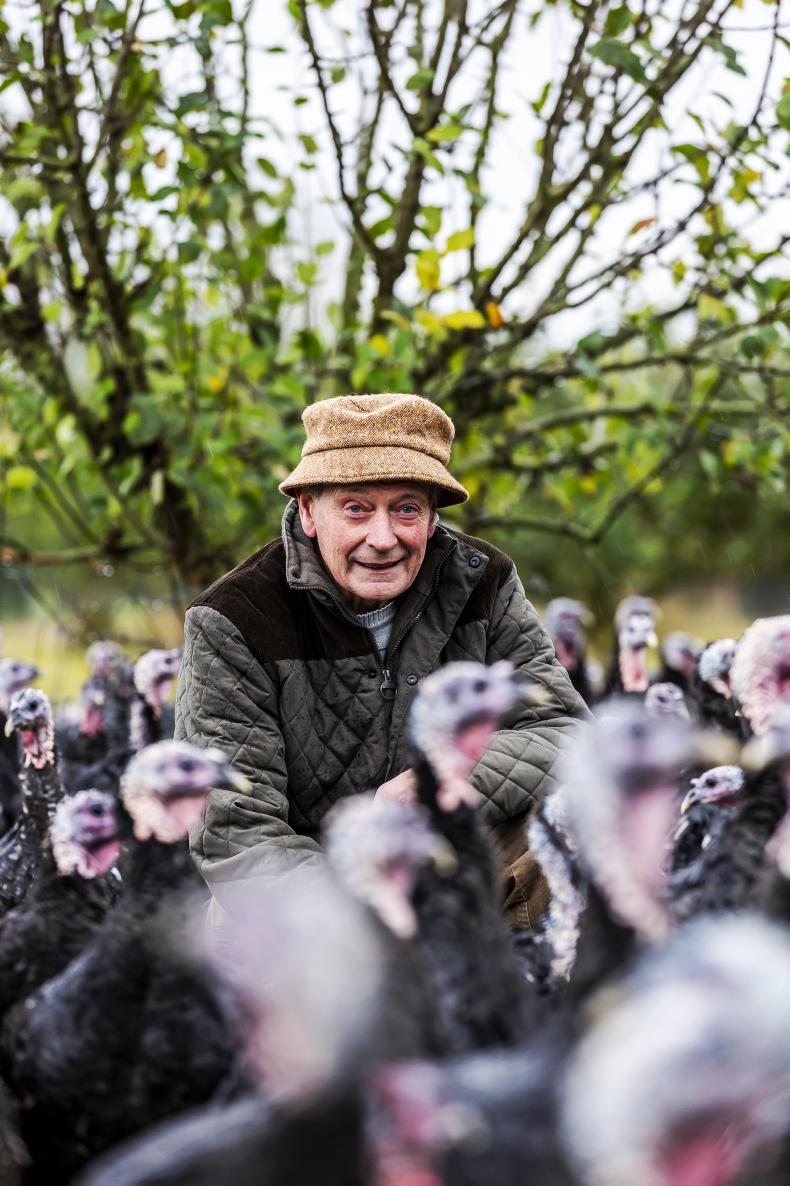
.
Firstly, bronze turkeys (the breed they keep) were in vogue again and not too many people were doing them. Secondly, Gerard was looking to get out of cattle, as no different to now, the price was poor. Thirdly, being a tillage farmer, this workload towards the end of the year suited his annual schedule. Fourthly, he could feed them his own wheat.
I didn’t have to build on any sheds. The sheds would have been full of cattle up to the time we got into turkeys
“I could feed them wheat I grew myself, as opposed to feeding them all compound ration at four times the price. I was able to feed them wheat at cost price, which meant it was economically viable, I had a margin on it.
“Otherwise the margin would be too small to bother getting into it. Also, I didn’t have to build on any sheds. The sheds would have been full of cattle up to the time we got into turkeys.”
And so, Ballybryan Bronze Turkeys began with 50 birds. They were then, and still are, free range. The first year the turkeys were bought mostly by the Lalors’ family and friends, but even then they could tell they were on to something. Through word of mouth over the years their customers grew and grew.
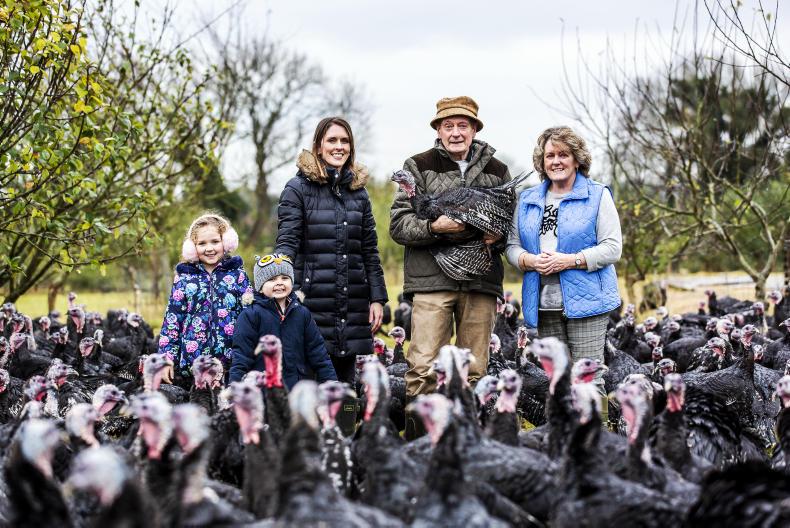
Zara, Jared and Rosemary Jenkinson with Gerard and Paula Lalor. \ Philip Doyle
Gerard and Paula have three grown up children. Rosemary, their daughter, explains why she thinks the turkeys have been so successful – taste! Feeding turkeys whole wheat adds a layer of fat under the skin, leaving the meat more moist.
Also efforts to keep the turkeys stress-free translates into the meat, turkeys being an animal that get worked up easily. They don’t leave the farm from when they arrive as six week old chicks, until they’re being taken away by customers. Home birds in every sense of the word.
The killing and plucking is all done on the farm. “There are four or five lads who help me. It takes us about from 12 to 15 December to get them killed and plucked. Then we hang them in a cold room uncleaned until about 19 or 20 December.
“Long ago everyone used hang them in an airy shed, it’s the same thing but we use a cold room instead. We then clean them out on 21 and 22 December. People collect them then 23 and 24 December.”
With the exception of about 40 turkeys sold to two local butchers and a collection point Paula operates in Lucan for Dublin market, the rest of the turkeys are collected from the Lalor’s house, which as you can imagine creates quite a buzz. At this stage they have the traffic plan nailed down, with a one way system in place.
When Irish Country Living visits Ballybryan Farm the turkeys are grazing in the orchard.
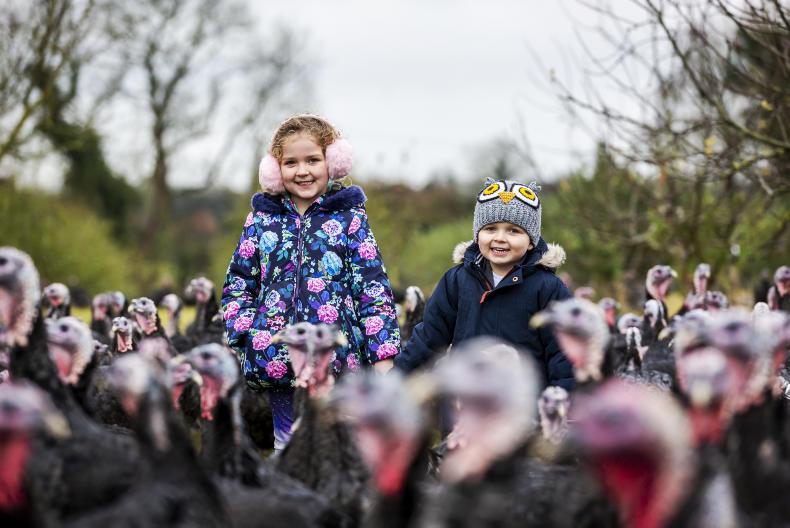
Zara and Jared Jenkinson. \ Philip Doyle
Their collective chirping heard before you can see them. Rosemary’s children, Zara and Jared, are very taken by their grandparents’ birds and are well used to being around them.
Since they planted the apple trees ten years ago and the turkeys started eating the apples, some customers feel they can taste it off the meat.
The turkey shed is surrounded by electric fencing, one of Gerard’s precautions against pine martens. He says if one was to ever get in the shed, it would be game over and more than likely he would never do turkeys again. His other defence against predators is none other than the radio!
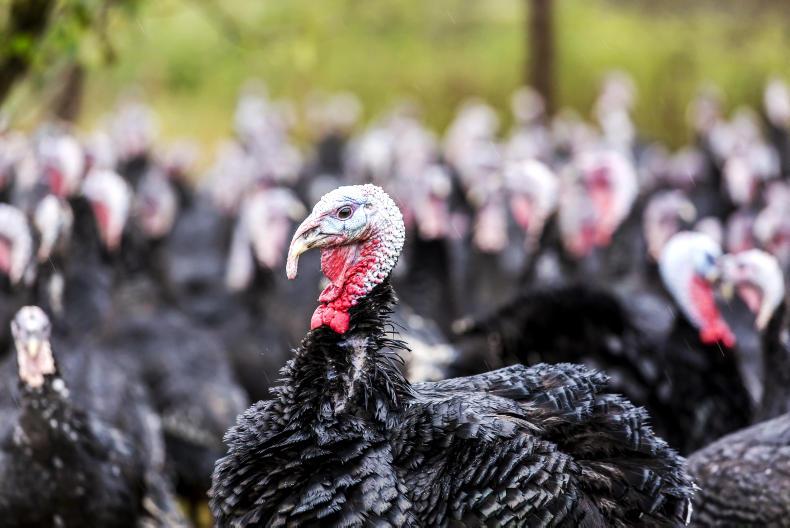
“We leave the radio going all night and all day in the shed. There are two reasons; if it was a windy night and a sheet of galvanise fell or rattled, it wouldn’t frighten them. They’re very fretful. As well as that, we would hope it might keep out predators,” says Gerard.
“That’s our biggest fear actually. We have never had a problem, but there are pine martens around. That’s why we have electric fencing all around them. We leave it on RTÉ Radio 1, because I happen to like to listen to it.
“Someone said to me once, ‘Why don’t you have Lyric FM on?’ I love Lyric too, but if you really want to frighten a turkey, you whistle. We felt James Galway playing the flute or something like that might terrify them. We have no lights in those sheds, in case someone turned on a light at night by accident. If a light came on at night they’d be petrified.”
An apple a day
On Ballybryan Farm the turkeys graze in an orchard. This was planted ten years ago with 20 varieties of heritage apples under REPS (Rural Environment Protection Scheme). This gave the turkeys another food source. But, after about six years, there were more apples on the trees than the turkeys could ever eat, says Rosemary.
“Rather than waste them and let them rot, Dad decided that it could be interesting as a side-line to press them and make apple juice. We pick them every September and outsource the pressing to Con Trass in Tipperary.
“We had about 1,500 to 2,000 bottles max every year. We tipped away, one butcher in town used to sell them and we sell them ourselves here at Christmas to our turkey customers. We knew we could sell a couple of hundred to the existing customer base.”
Gerard, Paula and Rosemary are all in agreement that selling the apple juice mostly looked after itself, until the 2018 crop that is.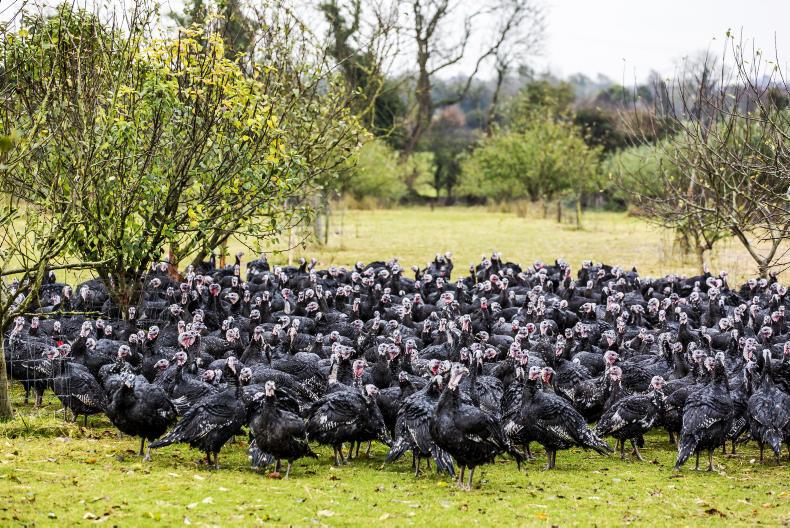
“The summer before last when it was really hot, the trees exploded in apples,” recalls Rosemary. “They (the trees) were maturing as well. Next thing it went from about 1,500 bottles to 8,000. Mam and Dad kept picking for weeks and weeks. They didn’t realise that volume of apples would translate into so many bottles.
“They were actually in the middle of being pressed when Con rang to say there was going to be around 8,000 bottles, would he stop now at the usual amount. They didn’t have the heart to say stop bottling after going to the trouble of picking them all by hand. After taking the chance to get the 8,000 bottles done, we had the challenge of getting it into more shops.”
Rosemary has been part-time in her job as a quantity surveyor since she had kids. Once again she decided to bulk up her workload by throwing herself into selling the extra apple juice. She took part in the Supervalu Food Academy, which helped get Ballybryan Apple Juice into more shops. They also took a stand at Bloom in the Phoenix Park. Just before the 2019 crop came back, they shifted their last bottle of the 8,000. Success.
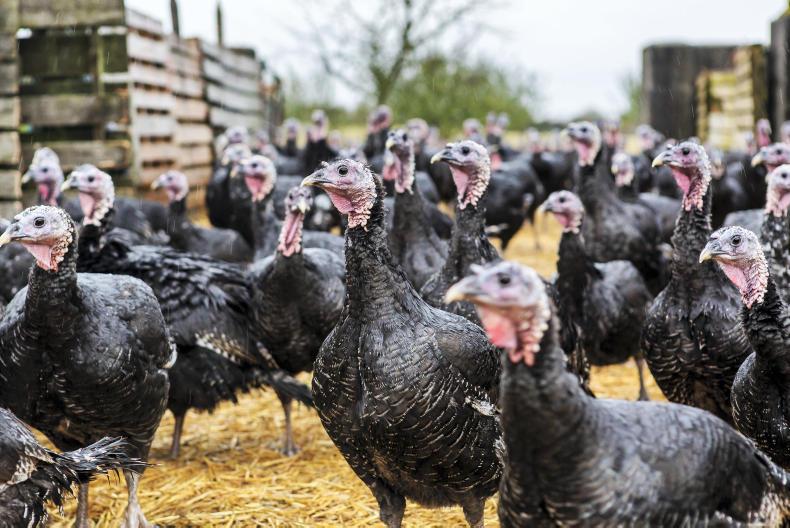
Due to the weather in 2019 not being as favourable, the number of bottles was down this year. They still have enough however for all their suppliers, but maybe not Bloom. They’re looking at how they can expand this strand of the business in the future.
Among all of their enterprises; from apples to grain, sheep, forestry and turkeys, for the Lalors, the direct link with their turkey customers is the most endearing element.
“You never get a meat factory ringing you back to saying, ‘That was a lovely load of cattle you sent in. Jesus they’re terrific bullocks’. You’d never get that selling grain either,” muses Gerard.
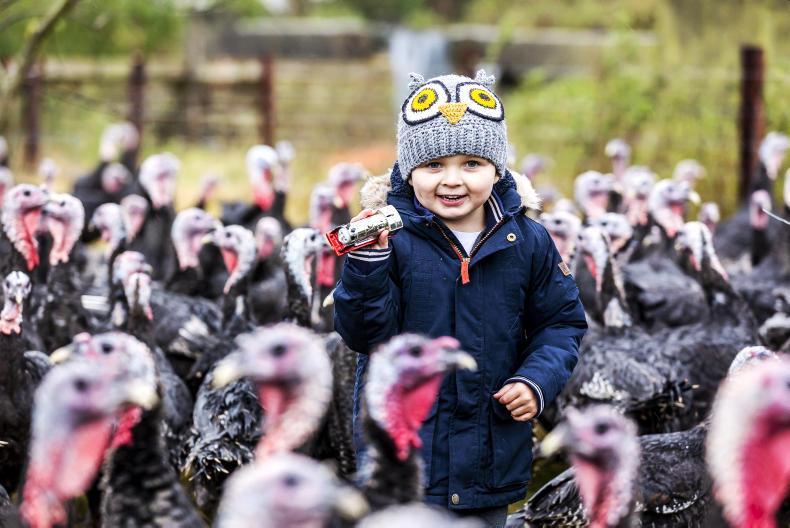
Jared Jenkinson. \ Philip Doyle
Read more
My Farming Week: Ger McMeyler, Maynooth, Co Kildare
All aboard for a berry merry Christmas
In the lead up to Christmas, when most families are preparing bread stuffing, putting the final tipple in the trifle and glazing the ham, the Lalors are having a rather different experience. On 23 and 24 December they’re overseeing the collection of hundreds of turkeys from their family home outside Rhode, Co Offaly.
By the time the last turkey has been seen off, you could say Christmas doesn’t start for the Lalors until late Christmas Eve night.
Looking at it from another perspective, it can be perceived that the festive season starts on Gerard and Paula Lalor’s farm good and early, when 650 chicks arrive in August.
Take it as you will, but what cannot be denied is that this is a very different type of Christmas to most.

Gerard and Paula Lalor. \ Philip Doyle
One where you gear up approaching 25 December as opposed to gearing down, one where Christmas dinner will be ready when it’s ready and one where your own bird is the last priority.
“If there’s a damaged one, we take that, one with a broken wing or something,” smiles Gerard of their Christmas goings-on.
The Lalors’ main enterprise is tillage. Gerard grows grain, wheat barley and spring beans. He also has forestry and sheep, but hasn’t lambed for the past two years. He buys in ewe lambs in autumn and sells them as breeding ewes the following September. The turkeys are the focus of the latter quarter of the year, ensuring there is no lull during what would otherwise be a quiet time. In recent years the Lalors started bottling apple juice – but more on that later.
There were a few things that sparked Gerard’s interest in turkeys when he first got into them 25 years ago (Ballybryan Bronze Turkeys were featured in the Farmers Journal in 2000 when they were just a few years in business)

.
Firstly, bronze turkeys (the breed they keep) were in vogue again and not too many people were doing them. Secondly, Gerard was looking to get out of cattle, as no different to now, the price was poor. Thirdly, being a tillage farmer, this workload towards the end of the year suited his annual schedule. Fourthly, he could feed them his own wheat.
I didn’t have to build on any sheds. The sheds would have been full of cattle up to the time we got into turkeys
“I could feed them wheat I grew myself, as opposed to feeding them all compound ration at four times the price. I was able to feed them wheat at cost price, which meant it was economically viable, I had a margin on it.
“Otherwise the margin would be too small to bother getting into it. Also, I didn’t have to build on any sheds. The sheds would have been full of cattle up to the time we got into turkeys.”
And so, Ballybryan Bronze Turkeys began with 50 birds. They were then, and still are, free range. The first year the turkeys were bought mostly by the Lalors’ family and friends, but even then they could tell they were on to something. Through word of mouth over the years their customers grew and grew.

Zara, Jared and Rosemary Jenkinson with Gerard and Paula Lalor. \ Philip Doyle
Gerard and Paula have three grown up children. Rosemary, their daughter, explains why she thinks the turkeys have been so successful – taste! Feeding turkeys whole wheat adds a layer of fat under the skin, leaving the meat more moist.
Also efforts to keep the turkeys stress-free translates into the meat, turkeys being an animal that get worked up easily. They don’t leave the farm from when they arrive as six week old chicks, until they’re being taken away by customers. Home birds in every sense of the word.
The killing and plucking is all done on the farm. “There are four or five lads who help me. It takes us about from 12 to 15 December to get them killed and plucked. Then we hang them in a cold room uncleaned until about 19 or 20 December.
“Long ago everyone used hang them in an airy shed, it’s the same thing but we use a cold room instead. We then clean them out on 21 and 22 December. People collect them then 23 and 24 December.”
With the exception of about 40 turkeys sold to two local butchers and a collection point Paula operates in Lucan for Dublin market, the rest of the turkeys are collected from the Lalor’s house, which as you can imagine creates quite a buzz. At this stage they have the traffic plan nailed down, with a one way system in place.
When Irish Country Living visits Ballybryan Farm the turkeys are grazing in the orchard.

Zara and Jared Jenkinson. \ Philip Doyle
Their collective chirping heard before you can see them. Rosemary’s children, Zara and Jared, are very taken by their grandparents’ birds and are well used to being around them.
Since they planted the apple trees ten years ago and the turkeys started eating the apples, some customers feel they can taste it off the meat.
The turkey shed is surrounded by electric fencing, one of Gerard’s precautions against pine martens. He says if one was to ever get in the shed, it would be game over and more than likely he would never do turkeys again. His other defence against predators is none other than the radio!

“We leave the radio going all night and all day in the shed. There are two reasons; if it was a windy night and a sheet of galvanise fell or rattled, it wouldn’t frighten them. They’re very fretful. As well as that, we would hope it might keep out predators,” says Gerard.
“That’s our biggest fear actually. We have never had a problem, but there are pine martens around. That’s why we have electric fencing all around them. We leave it on RTÉ Radio 1, because I happen to like to listen to it.
“Someone said to me once, ‘Why don’t you have Lyric FM on?’ I love Lyric too, but if you really want to frighten a turkey, you whistle. We felt James Galway playing the flute or something like that might terrify them. We have no lights in those sheds, in case someone turned on a light at night by accident. If a light came on at night they’d be petrified.”
An apple a day
On Ballybryan Farm the turkeys graze in an orchard. This was planted ten years ago with 20 varieties of heritage apples under REPS (Rural Environment Protection Scheme). This gave the turkeys another food source. But, after about six years, there were more apples on the trees than the turkeys could ever eat, says Rosemary.
“Rather than waste them and let them rot, Dad decided that it could be interesting as a side-line to press them and make apple juice. We pick them every September and outsource the pressing to Con Trass in Tipperary.
“We had about 1,500 to 2,000 bottles max every year. We tipped away, one butcher in town used to sell them and we sell them ourselves here at Christmas to our turkey customers. We knew we could sell a couple of hundred to the existing customer base.”
Gerard, Paula and Rosemary are all in agreement that selling the apple juice mostly looked after itself, until the 2018 crop that is.
“The summer before last when it was really hot, the trees exploded in apples,” recalls Rosemary. “They (the trees) were maturing as well. Next thing it went from about 1,500 bottles to 8,000. Mam and Dad kept picking for weeks and weeks. They didn’t realise that volume of apples would translate into so many bottles.
“They were actually in the middle of being pressed when Con rang to say there was going to be around 8,000 bottles, would he stop now at the usual amount. They didn’t have the heart to say stop bottling after going to the trouble of picking them all by hand. After taking the chance to get the 8,000 bottles done, we had the challenge of getting it into more shops.”
Rosemary has been part-time in her job as a quantity surveyor since she had kids. Once again she decided to bulk up her workload by throwing herself into selling the extra apple juice. She took part in the Supervalu Food Academy, which helped get Ballybryan Apple Juice into more shops. They also took a stand at Bloom in the Phoenix Park. Just before the 2019 crop came back, they shifted their last bottle of the 8,000. Success.

Due to the weather in 2019 not being as favourable, the number of bottles was down this year. They still have enough however for all their suppliers, but maybe not Bloom. They’re looking at how they can expand this strand of the business in the future.
Among all of their enterprises; from apples to grain, sheep, forestry and turkeys, for the Lalors, the direct link with their turkey customers is the most endearing element.
“You never get a meat factory ringing you back to saying, ‘That was a lovely load of cattle you sent in. Jesus they’re terrific bullocks’. You’d never get that selling grain either,” muses Gerard.

Jared Jenkinson. \ Philip Doyle
Read more
My Farming Week: Ger McMeyler, Maynooth, Co Kildare
All aboard for a berry merry Christmas












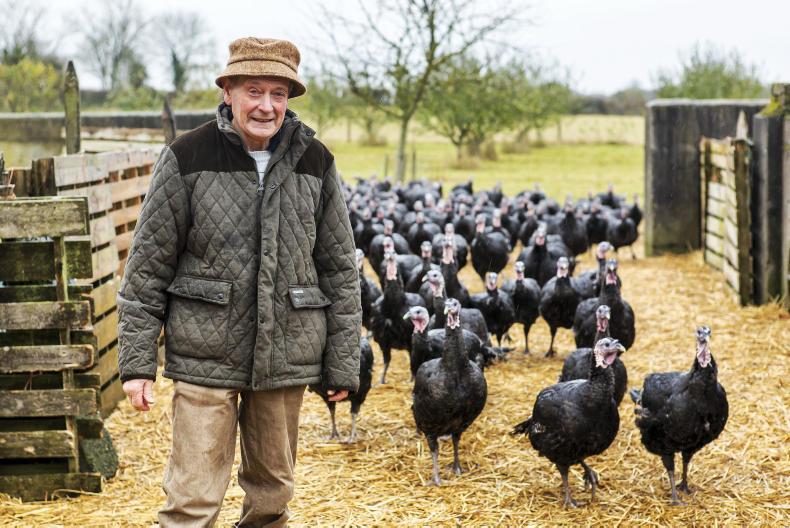
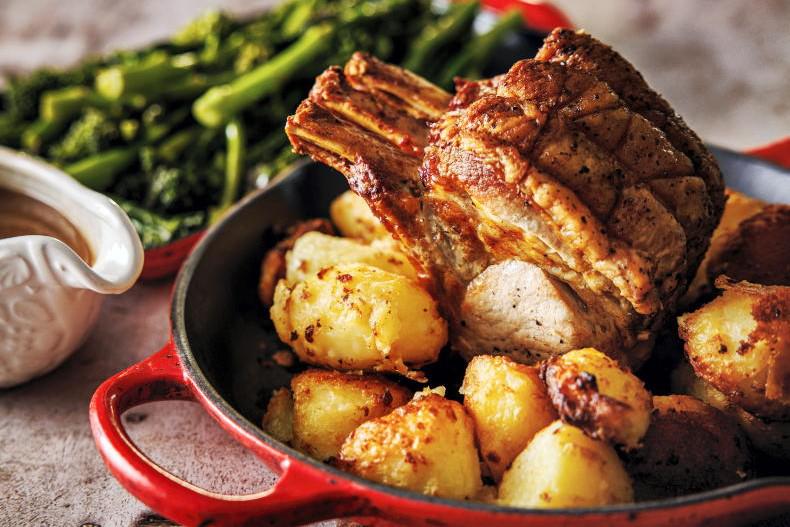
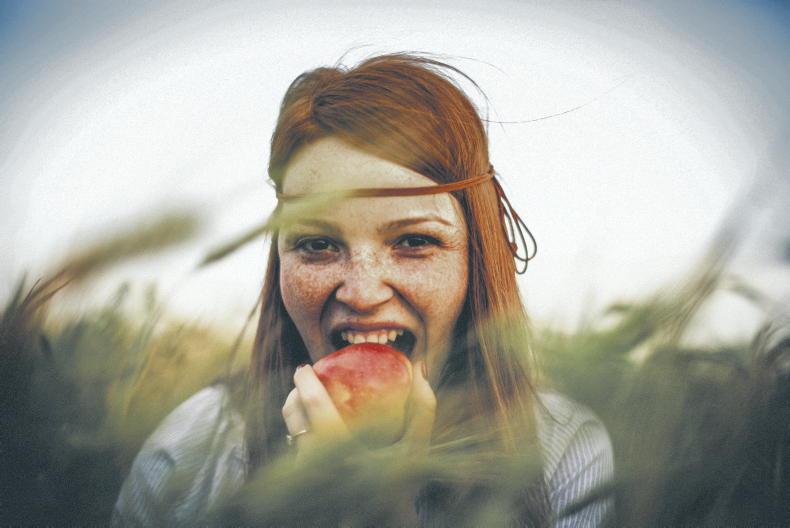


SHARING OPTIONS